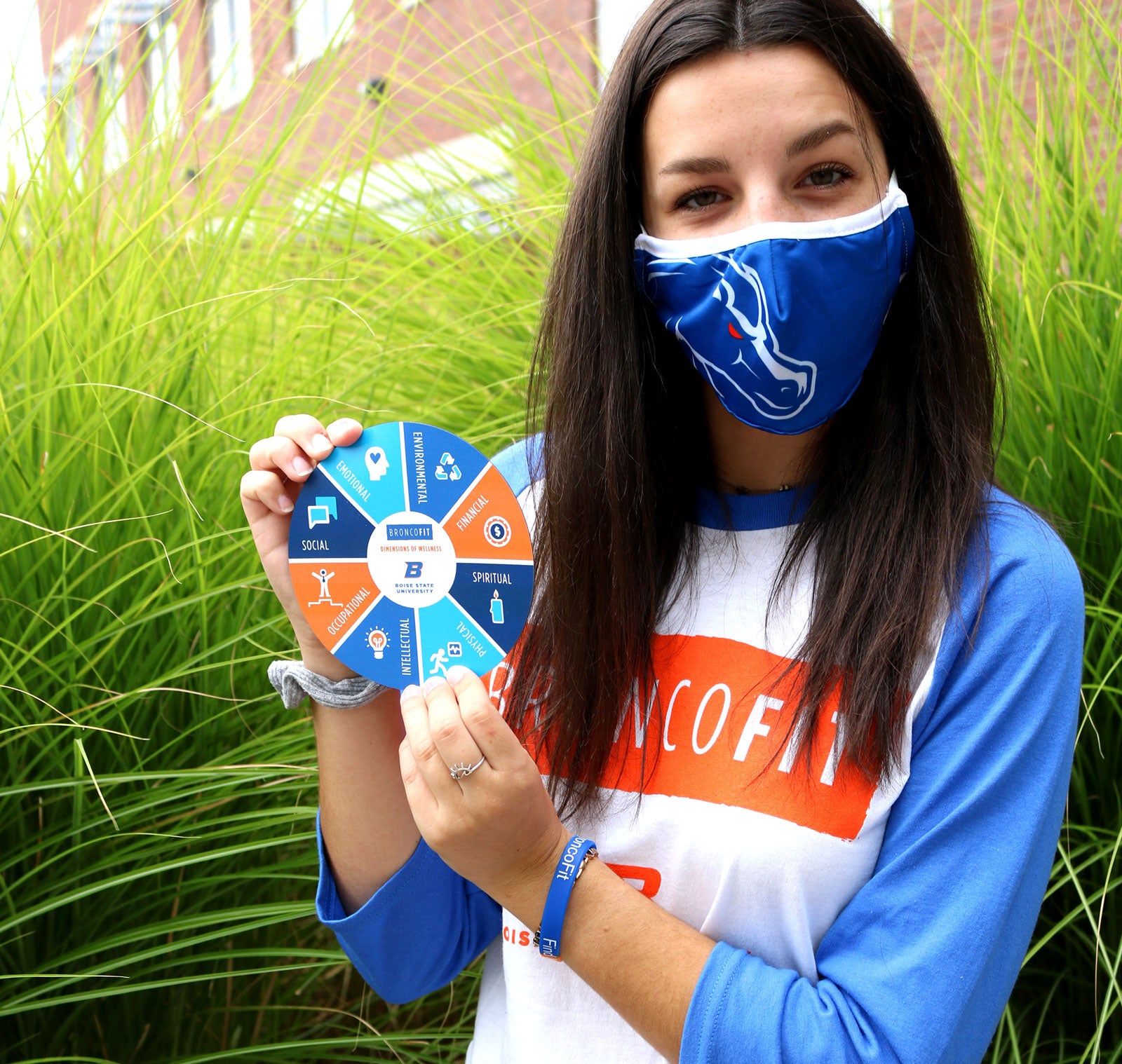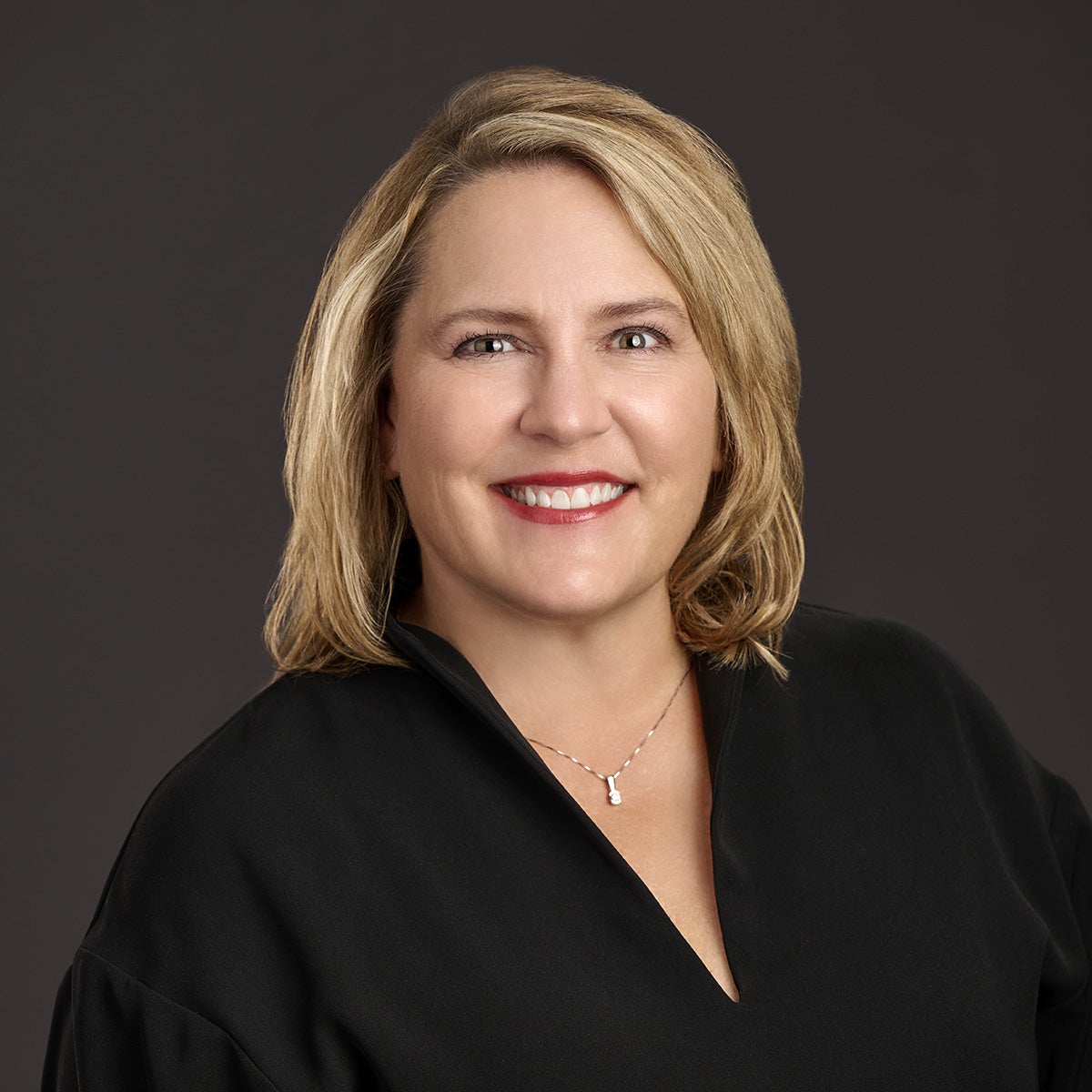
The state of the science of mental health suggests that one’s headspace is part of a broader health continuum that includes psychological, physical, emotional and spiritual aspects. That’s the gist of BroncoFit. While wellness has been a theme of Boise State services since at least the early 2000s, the term only became their centerpiece under the aegis of BroncoFit in 2015. Now under the direction of Holly Levin, it puts on events, provides information and services, and communicates about health along eight dimensions of wellness, including emotional, environmental, financial, spiritual, physical, intellectual, occupational and social aspects.
Levin’s efforts provide some services for individuals, but she has taken BroncoFit in a community-minded direction with the help of 10 student peer educators. Together they seek ways to advance positive mental health among the entire community. Those include everything from campus design and promoting healthy relationships to educating about good sleep and diet.
“Keeping students well — I think a lot of times people think about it from a treatment perspective, and that’s so important, but people forget about the prevention side of mental health. That’s finding a sense of belonging, a group of friends. We forget that it’s moving your body: That’s crisis prevention. Those are ways of preventing mental health issues,” she said.
Promoting wellness and positive lifestyle habits, training others to watch for the signs of distress and supporting services are ways Boise State has positioned itself to tackle mental health problems, questions and possibilities. At their core is a desire for students, faculty and staff to be successful.
Student success has taken Boise State’s wellness mission off campus. Every year, graduates from various mental health-oriented fields enter the workforce to apply their training and values in the real world.
One of them is Alyee Willets, ‘19. Willets didn’t know what she wanted to do after graduating from high school, so she took four years to travel the world and volunteer. While in South Africa working with children, she noticed that their art had deeper meanings than was apparent on the surface, and she returned from her sojourn interested in counseling.

At Boise State, she worked with an advisor who she said asked her tough questions, challenging her to grow academically and as an individual; and her classes prepared her to look beyond first impressions.
“I had wonderful supervisors and mentors who cared for me and helped guide me to become the therapist that I am today,” she said.
Alyee Willets
After graduating with degrees in art and psychology, she received her master’s in Counseling with an emphasis on addiction. Today she works at the Center for Change in Boise, Idaho, where she treats clients with eating disorders. She entered the field just in time for the COVID-19 pandemic to strike, and noticed how many more people sought help in those first months.
Idaho has historically ranked lowly when it comes to funding mental health initiatives, but Boise State has continued to train social workers, therapists and others who enter into mental health-related fields. Each of them comes with their own story of how it became important to them and why they contribute. Willets’ is a classic case of Broncos going out into the world to serve.
“While packing for a move I found a journal I wrote when I was 11 years old, where I said that I wanted to grow up to become a counselor to help others the way that others had helped me,” she said. “And that solidified it for me! I knew that I wanted to work in Idaho because we are so underserved in the field of mental health.”
Make a gift to support mental health programming and access at Boise State.
Continue Reading
Let's Chat!
-

Heather A. Jauregui, MSEd
Senior Director of Development